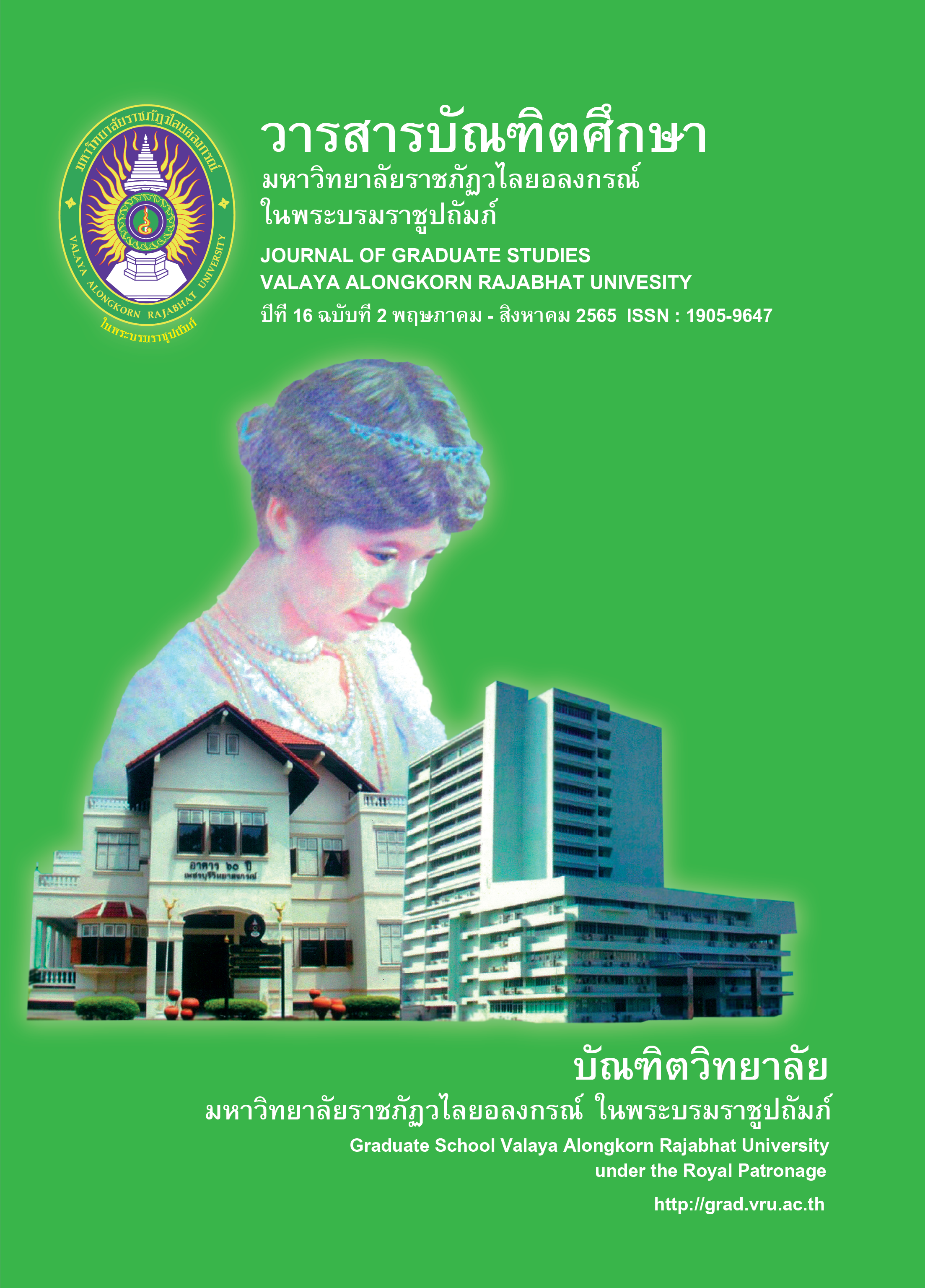THE POLICY FRAMEWORKS AND DATA COLLECTION ON CONSERVATION AND MANAGEMENT OF GEOLOGICAL SITES AND GEOPARK OF THAILAND FOR 5 YEARS
Main Article Content
Abstract
The objectives of research were to 1) prepare the conceptual framework of Conservation and Management of Geological sites and Geopark of Thailand, and 2) to present the recommendations to drive the conceptual framework of Conservation from the year 2021-2025 and also the management of geological sites and Geopark of Thailand for 5 years. The qualitative research was employed by using the method of participation observation, In-Depth Interview and focus group discussion. The key informants were the representatives from central provincial and rural government organizations, provincial Geological sites and Geopark Directors, community representative at concerning area, non-governments representatives and people in the area. The key informants selected by using the Criterion - Based Selection method.
The results showed that 1) conceptual framework of Conservation and Management of Geological sites and Geopark of Thailand in 5 years aimed to promote the conservation and development of Geopark management system to the international standards which consisted of 3 strategies as followings; (1) the strategy on reservation, conservation, (2) restoration and value building of geological sites and Geopark of Thailand; (3) the strategy on the development of knowledge and cultural promotion of geological sites and Geopark of Thailand and the strategy on enhancing the capacity of Thai geological heritage management and sustainable social integration. There were also 4 policies as followings; (1) the policy on conservation and creation of Thai geological heritage value; (2) the policy on Thai geological heritage management system; (3) the policy on knowledge, understanding and consciousness of Thai geological heritage value promotion and (4) the policy of networks and alliances building of Thai geological. 2) The Important recommendations included of; (1) mapping and organizing the systematic central databases; (2) Promoting public participation and (3) integrating agencies to operate in the same direction.
Article Details

This work is licensed under a Creative Commons Attribution-NonCommercial-NoDerivatives 4.0 International License.
บทความทุกเรื่องได้รับการตรวจความถูกต้องทางวิชาการโดยผู้ทรงคุณวุฒิ ทรรศนะและข้อคิดเห็นในบทความ Journal of Global of Perspectives in Humanities and Social Sciences (J-GPHSS) มิใช่เป็นทรรศนะและความคิดของผู้จัดทำจึงมิใช่ความรับผิดชอบของบัณฑิตวิทยาลัย มหาวิทยาลัยราชภัฏวไลยอลงกรณ์ ในพระบรมราชูปถัมภ์ กองบรรณาธิการไม่สงวนสิทธิ์การคัดลอก แต่ให้อ้างอิงแหล่งที่มา
References
Cochran, C. L. & Malone, E. F. (2005). Public Policy: Perspective and Choices. (3rd ed.). London: Lynne Rienner.
Department of Mineral Recourses. (2010). Establishment of Geopark. Supporting Documents for the Establishment of Bangkok Geopark: Department of Mineral Resources.
Department of Mineral Recourses. (2014). Context of geological conservation. Bangkok Conservation and Management Division. Department of Mineral Resources.
Department of Mineral Recourses. (2020). Strategy of Department of Mineral Resources 2020-2022. Bangkok: Department of Mineral Resources.
Geopark-Thailand. (2019). Map showing the location of Thailand's Geotechnical Park, Department of Mineral Resources.
Miles, M. B. and Huberman, A. M. (1994). Qualitative Data Analysis. (2nd ed). Thousand Oaks. CA: Sage Publications.
National Strategy Secretariat Office. (2017) .National Strategy 2018-2037(Summary). Bangkok: Office of the National Economic and Social Development Board.
Office of Natural Resources and Environmental Policy and Planning. (2017). Environmental Quality Management Plan 2017-2021. Bangkok: Office of Natural Resources and Environmental Policy and Planning. Ministry of Natural Resources and Environment.


